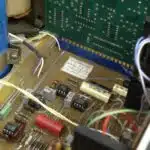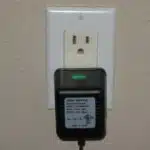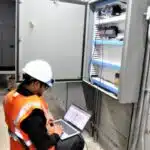As a home air conditioner expert, I have seen countless homeowners struggle with choosing the right type of air conditioner for their needs. With so many options available on the market, it can be overwhelming to determine which one is best suited for your particular living space and budget. In this article, we will explore the four main types of home air conditioners and provide helpful tips on how to choose the perfect unit for your home.
The importance of selecting the right type of air conditioner cannot be overstated. Not only does it impact your comfort level during hot summer months, but it also affects your energy bills and overall indoor air quality. By understanding the differences between each type of air conditioner and evaluating factors such as room size, insulation, and ventilation, you can make an informed decision that meets your specific needs. Whether you are looking for a central air conditioning system or a portable unit, our guide will equip you with the knowledge needed to make an informed purchase that serves you well in the long run.
Central Air Conditioners
Central air conditioners are one of the most popular types of home air conditioning systems. They are designed to cool an entire house and can be installed either as part of a new construction or as a replacement for an existing system. The installation process typically involves connecting the unit to your ductwork, which distributes cool air throughout your home. While installation can be complex and expensive, central air conditioners are generally more efficient than other types of air conditioning systems.
Maintenance requirements for central air conditioners vary depending on the model and usage. Most manufacturers recommend annual maintenance by a professional technician to ensure that the system is running at peak efficiency. This often includes cleaning and inspecting the unit, replacing filters, and checking refrigerant levels. Homeowners can also perform some basic maintenance tasks themselves, such as cleaning or replacing filters regularly, checking outdoor units for debris, and ensuring that indoor vents are unobstructed.
Overall, central air conditioners provide a reliable and efficient way to cool your entire house. However, they can be expensive to install and maintain compared to other types of air conditioning systems. If you have a large home or live in a hot climate, a central air conditioner may be the best option for you. In the next section, we will discuss another type of home air conditioner: window units.
Window Air Conditioners
As we learned in the previous section, central air conditioners are a great option for those who want to cool their entire home. However, not every house is equipped with the necessary ductwork to support a central AC system. That’s where window air conditioners come in.
Window air conditioners are great for cooling individual rooms or small spaces. They are easy to install and can be removed when not needed. One important thing to note is that they require proper installation to ensure they work efficiently and effectively. Improper installation can lead to inefficiency, higher energy bills, and even damage to the unit.
Maintenance requirements for window air conditioners are relatively low compared to other types of AC units. The most important thing you can do is clean the filter regularly, as it collects dirt and dust over time. Neglecting this task can cause the unit to work harder than it needs to, resulting in higher energy bills and a shorter lifespan for the unit itself. It’s also important to periodically check the unit’s drain hole and remove any debris that may have accumulated there.
Now that we’ve covered window air conditioners, let’s move on to another popular option: ductless mini-split air conditioners. These units provide efficient cooling without requiring ductwork throughout the home, making them an excellent choice for those who want a more flexible installation process.
Ductless Mini-Split Air Conditioners
- Ductless mini-split air conditioners offer several advantages over traditional air conditioning systems, such as more efficient cooling, improved air quality, and easier installation and maintenance.
- A ductless mini-split air conditioner requires proper installation, which includes the placement of an outdoor unit, a line set to connect the indoor and outdoor units, and electrical wiring.
- To ensure optimal performance, it is important to choose the correct size of the air conditioner for the area that is to be cooled.
- Professional installation is necessary to ensure that the system is operating safely and efficiently, and to take advantage of any warranties provided by the manufacturer.
Advantages Of A Ductless Mini-Split Air Conditioner
Ductless mini-split air conditioners have gained immense popularity in recent years due to their energy efficiency and flexibility. One of the main advantages of this type of air conditioner is that it does not require ductwork for installation. This makes the installation process much easier and less invasive than traditional central air conditioning systems. With a ductless mini-split air conditioner, you can cool individual rooms or zones in your home without needing to install ducts throughout the entire house.
Another advantage of a ductless mini-split air conditioner is its cost-effectiveness when compared to traditional central air conditioning systems. While the initial installation cost may be higher, in the long run, a ductless mini-split system can save you money on energy bills. Because you can control which zones are being cooled at any given time, you don’t have to waste energy cooling unoccupied areas of your home. Additionally, because these systems are highly efficient, they use less energy overall, resulting in lower monthly utility bills.
When considering purchasing a ductless mini-split air conditioner, it’s important to weigh all the pros and cons before making a decision. While these systems offer many advantages over traditional central air conditioning systems, they may not be suitable for every home or situation. Factors such as the size of your home, number of rooms or zones that need cooling, and your budget should all be taken into consideration when deciding if a ductless mini-split system is right for you. By doing some research and consulting with an HVAC professional, you can make an informed decision about which type of air conditioning system will best meet your needs.
Installation Requirements For A Ductless Mini-Split Air Conditioner
When it comes to installing a ductless mini-split air conditioner, there are several important factors to consider. First and foremost, you will need the necessary tools to complete the installation process. Some of the required tools include a drill, hole saw, tubing cutter, and wrenches. It’s also important to note that electrical considerations must be taken into account during installation. A licensed electrician may be needed to ensure proper wiring and safety.
In addition to having the necessary tools and addressing electrical concerns, other installation requirements for a ductless mini-split air conditioner include selecting the right location for the indoor and outdoor units. The indoor unit should be mounted high on a wall in the room being cooled, while the outdoor unit should be installed on a stable surface away from direct sunlight or excessive rain exposure. Proper insulation around tubing and wires is also crucial for ensuring efficient operation.
Overall, installing a ductless mini-split air conditioner requires careful planning and attention to detail. By following proper installation requirements and seeking professional help when needed, homeowners can enjoy the many benefits of this type of air conditioning system for years to come.
Portable Air Conditioners
Portable air conditioners have become increasingly popular in recent years, especially among those who live in small spaces. These units are designed to be easily moved from room to room and do not require any installation or complicated setup. However, it is important to note that proper maintenance is necessary for these units to function efficiently.
One of the benefits of using a portable air conditioner is that it can cool small spaces quickly and effectively. This makes them ideal for apartments, dorm rooms, and other areas where a central AC system may not be practical. Additionally, portable ACs can save you money on your energy bills since they only cool the area that you are currently occupying.
To ensure that your portable air conditioner continues to work properly, regular maintenance is required. This includes cleaning or replacing the filter every few weeks and checking for any leaks or damage. It’s also important to make sure that the exhaust hose is properly attached and free from obstructions.
Understanding room size and insulation is crucial when choosing the right type of air conditioner for your home. In the next section, we will discuss how to determine the appropriate size unit based on your room’s square footage and insulation level.
Understanding Room Size And Insulation
Did you know that the size of your room and the insulation play a significant role in choosing an air conditioner? According to recent studies, rooms with high ceilings, large windows, or poor insulation require more cooling power than smaller ones with good insulation. Understanding your room size and insulation is crucial to ensure efficient cooling while minimizing energy consumption.
To determine the appropriate air conditioner for your space, start by measuring your room’s square footage. If you have a larger area, it is recommended to choose an air conditioner with higher cooling capacity. However, keep in mind that an oversized unit may result in higher power consumption without providing any additional benefits. On the other hand, inadequate cooling capacity will lead to longer run times and increased energy bills.
Another essential factor to consider when choosing an air conditioner is your room’s insulation. Insulation helps maintain a comfortable indoor temperature by preventing heat transfer between indoor and outdoor environments. Poorly insulated rooms require more cooling power than well-insulated ones since they lose more cool air through walls, ceilings, and windows. Therefore, before investing in an air conditioner, make sure to evaluate your room’s insulation needs.
To provide optimal comfort while minimizing energy costs, it is crucial to strike a balance between cooling efficiency and power consumption. By understanding your room size and insulation needs, you can choose the right air conditioning unit that efficiently cools your space without wasting energy. In the next section, we will discuss how evaluating ventilation needs plays a vital role in selecting an appropriate home air conditioner system for your home.
Evaluating Ventilation Needs
Understanding the size and insulation of your room is essential when selecting an air conditioner, but it’s not the only factor to consider. Proper ventilation is also crucial for efficient cooling. Before purchasing an air conditioner, you need to assess your ventilation needs.
Assessing ventilation involves determining how much fresh air enters and circulates through your space. A well-ventilated area allows for proper airflow, which helps regulate temperature and improve indoor air quality. If your home has poor ventilation, you may experience problems with mold growth, high humidity levels, and stagnant air that can make you feel uncomfortable.
Airflow requirements are another key consideration when evaluating ventilation needs. A properly sized air conditioner will provide adequate airflow to cool your space effectively. You’ll want to look at the unit’s CFM (cubic feet per minute) rating to determine its airflow capacity. If you have a large room or open floor plan, you’ll need an air conditioner with a higher CFM rating than if you have a smaller room with fewer obstacles.
Assessing ventilation needs is critical in choosing the right home air conditioner for your space. Understanding the amount of fresh air entering and circulating through your rooms will help ensure proper airflow and efficient cooling. In the next section, we’ll discuss energy efficiency ratings and how they can impact your home’s cooling costs.
Energy Efficiency Ratings
When it comes to home air conditioners, energy efficiency ratings are a crucial factor to consider. These ratings give an idea of how much energy the AC unit will consume, which can affect your monthly electricity bills. Choosing an air conditioner with high energy efficiency can help you save money on your utility bills in the long run.
One way to determine the energy efficiency of an AC unit is by looking at its SEER (Seasonal Energy Efficiency Ratio) rating. The higher the SEER rating, the more efficient the unit is. Energy saving tips that you can follow include choosing an AC unit with a SEER rating of 14 or higher, and properly maintaining your air conditioner by cleaning or replacing its filters regularly.
Another factor to consider when choosing an air conditioner is selecting the right size for your home. A unit that is too small won’t effectively cool your space, while one that is too large will consume more energy than necessary. To choose the right size, calculate the square footage of your room and consult with an HVAC expert who can recommend a suitable AC unit based on your needs.
- Five energy-saving tips when using home air conditioners:
- Use ceiling fans along with the AC to distribute cool air throughout the room.
- Keep doors and windows closed while using the AC.
- Set your thermostat to a temperature that’s comfortable but not too low.
- Schedule regular maintenance for your air conditioner.
- Consider installing a programmable thermostat for better control over your cooling system.
With these energy-saving tips in mind, you can make informed decisions when choosing a home air conditioner that meets both your comfort and budget needs. In addition to considering energy efficiency ratings and selecting the right size, there are other factors to keep in mind such as noise levels. By taking these steps, you can enjoy cooling comfort without breaking the bank or sacrificing performance.
Noise Levels
When it comes to choosing a home air conditioner, one of the most important factors to consider is noise levels. Decibel levels can have a significant impact on both your health and overall comfort level in your home. It’s essential to understand how different types of air conditioners operate and what soundproofing solutions are available.
Firstly, it’s important to note that decibel levels vary depending on the size and type of the air conditioner. Window units tend to be louder than central air systems since they are often located closer to living spaces. Portable units also tend to produce more noise due to their smaller size and limited space for insulation. When selecting an air conditioner, be sure to check its decibel rating, with lower numbers indicating quieter operation.
Secondly, high decibel levels can negatively impact your health, causing stress, sleep disturbance, and hearing damage over time. To avoid these issues, consider investing in soundproofing solutions such as acoustic panels or curtains specially designed for HVAC equipment. Additionally, you may want to place your air conditioner in a location that is further away from bedrooms or quiet spaces in your home.
Overall, understanding decibel levels and their impact on health is crucial when choosing an air conditioner for your home. With proper knowledge and attention paid to soundproofing solutions, you can enjoy cool comfort without sacrificing peace and quiet.
When considering cost and budget considerations for purchasing a home air conditioner, it’s essential first to determine what type of system will best suit your needs. Depending on the size of your home or apartment and other factors like insulation level or climate conditions where you live—central AC may be the most efficient option while portable or window units may offer more flexibility at a lower cost point.
Cost And Budget Considerations
When it comes to home air conditioners, cost is a major consideration for most people. After all, we all want to save money while getting the best possible performance from our air conditioning units. The good news is that there are a variety of options available at different price points, so you can find an air conditioner that fits your budget.
Comparison shopping is essential when it comes to finding an air conditioner that won’t break the bank. Don’t just buy the first unit you see – take the time to research and compare different models and brands. Look for units that offer energy-efficient features, as these can help lower your utility bills over time. Consider both the upfront cost and long-term savings when making your decision.
Installation costs are another factor to keep in mind when budgeting for a new air conditioner. Depending on the complexity of your installation, you may need to pay for professional installation services. However, some units are designed for easy DIY installation, which can save you money in labor costs. Be sure to factor in any additional equipment or materials needed for installation as well. By doing your research and comparing prices carefully, you can find an air conditioner that fits your budget without sacrificing quality or performance.
Moving forward into maintenance requirements, it’s important to keep up with regular upkeep on your home air conditioner unit in order to keep it running smoothly and efficiently.
Maintenance Requirements
After considering the cost and budget considerations of purchasing a home air conditioner, it is important to also think about the maintenance requirements. Preventative maintenance can help extend the lifespan of your unit and keep it running efficiently. This includes cleaning or replacing filters regularly, checking for leaks, and ensuring proper airflow.
One common issue that homeowners may encounter with their air conditioning unit is a refrigerant leak. This can cause reduced cooling capacity and increased energy consumption. It is important to address this issue promptly by contacting a professional technician to repair the leak and recharge the refrigerant.
Another common issue is electrical problems, such as faulty wiring or capacitors. These issues can cause the unit to run inefficiently or not at all. Regular inspections by a professional technician can help identify these issues early on and prevent further damage or costly repairs in the future.
Proper maintenance of your home air conditioner can save you money in the long run by preventing major issues from occurring and keeping your unit running efficiently. In the next section, we will discuss the installation process and what factors to consider when choosing a location for your unit in your home.
Installation Process
As the saying goes, “Measure twice, cut once.” This phrase holds true for any type of installation, especially when it comes to home air conditioners. Before you start the installation process, it’s important to understand the costs associated with each option. DIY installation may seem like a cost-effective choice, but it can end up costing more in the long run if not done correctly. On the other hand, professional installation may come with a higher price tag upfront but can save you time and potential headaches down the road.
When it comes to cost comparison, DIY installation may seem like an attractive option due to its lower upfront cost. However, it’s important to consider the potential risks involved in doing it yourself. If not installed properly, home air conditioners can result in costly repairs or even replacement. Professional installation ensures that your unit is installed correctly and meets all safety requirements.
The decision between DIY or professional installation ultimately depends on your level of experience and confidence with installing home air conditioners. If you’re unsure about your ability to install an AC unit, it’s best to leave it to the professionals. In doing so, you’ll have peace of mind knowing that your unit is installed correctly and efficiently.
Environmental Impact
Having discussed the installation process of home air conditioners, it is essential to examine their environmental impact. Air conditioning units can have an adverse effect on the environment, particularly if they are not used correctly. They are known to consume a significant amount of energy, which can lead to carbon emissions and contribute to global warming. Therefore, it is crucial to consider sustainability measures when choosing an air conditioner for your home.
One of the essential factors to consider when selecting an air conditioner is its energy efficiency rating. The higher the rating, the more efficient and environmentally friendly the unit will be. It is also important to choose a unit that has been designed with eco-friendly materials and components. These materials help reduce waste and ensure that the air conditioner has minimal negative environmental impact.
Lastly, it is crucial to choose a brand that values sustainability measures and incorporates them into their manufacturing processes. This way, you can be sure that you are investing in an environmentally friendly product that aligns with your values as a conscientious citizen. In summary, considering environmental impact and sustainability measures when shopping for a home air conditioner will help reduce your carbon footprint while keeping your living space comfortable.
As we’ve seen in this section, considering environmental impact plays a vital role in choosing a home air conditioner. However, it is also important to factor in warranty and customer service when making your selection. A warranty ensures that you are protected against any defects or issues with the unit during its lifespan. Additionally, excellent customer service can provide peace of mind should anything go wrong with your unit by providing quick solutions and assistance whenever necessary.
Warranty And Customer Service
- Home air conditioners come with a variety of warranties, including limited warranties and full coverage warranties.
- Limited warranties usually cover parts and labor for a specified amount of time, while full coverage warranties may cover the entire system for a longer period.
- The type of warranty chosen depends on the expected life of the air conditioner and the owner’s desired level of protection.
- Customers should consider the type of customer service available for their air conditioner before making a purchase.
- Quality customer service can make a difference in the longevity and performance of an air conditioner.
- Quality customer service should include options such as phone support, online troubleshooting, and in-person service visits.
Types Of Warranties
As a home air conditioner expert, it is important to understand the different types of warranties available when purchasing an air conditioning unit. Warranty coverage can vary greatly between manufacturers and models, so it is imperative to thoroughly research and compare options before making a decision.
One common type of warranty is a limited warranty, which typically covers specific parts and labor for a set period of time. These warranties often have terms and conditions that must be followed in order to qualify for coverage, such as regular maintenance or use of authorized repair technicians.
Another type of warranty is an extended warranty, which can provide additional coverage beyond the initial limited warranty period. These warranties may cover more parts or longer time frames, but are often sold separately and can come at an additional cost. It is important to carefully consider whether the added expense of an extended warranty is worth the potential benefits.
When it comes to claiming warranty coverage, the process can vary depending on the manufacturer and their policies. Some may require proof of regular maintenance or documentation of the issue before approving a claim. It is essential to familiarize yourself with the specific claim process outlined in your warranty agreement in order to ensure timely resolution in case any issues arise with your home air conditioner.
Warranty Coverage
Warranty and customer service are significant factors when it comes to purchasing a home air conditioner. In addition to understanding the different types of warranties available, it is also important to comprehend the limitations that come with them. Limited warranties are often offered by manufacturers and cover specific parts and labor for a set period of time. However, they may require regular maintenance or the use of authorized repair technicians to qualify for coverage.
Extended warranties, on the other hand, offer additional coverage beyond the initial limited warranty period. While they can cover more parts or longer time frames, they often come at an additional cost. As a home air conditioner expert, it is crucial to carefully consider whether the added expense of an extended warranty is worth the potential benefits. Understanding these limitations can help homeowners make informed decisions when purchasing their air conditioning units.
When it comes to claiming warranty benefits, homeowners must follow specific procedures outlined in their warranty agreements. Manufacturers may require proof of regular maintenance or documentation of the issue before approving a claim. It is essential to familiarize oneself with the specific claim process outlined in their warranty agreement in order to ensure timely resolution in case any issues arise with their home air conditioner. By doing so, homeowners can avoid delays or denials in receiving warranty benefits and continue enjoying optimal performance from their air conditioning units.
Customer Service Options
As a home air conditioner expert, it is essential to understand the different customer service options available to homeowners. While warranties cover specific parts and labor for a set period of time, customer service options can provide personalized support and 24/7 availability for any issues that arise with their air conditioning units. These options can include phone or online support, in-person repairs and maintenance, or extended service agreements.
Phone or online support can be a convenient option for homeowners who need assistance with their home air conditioner. Many manufacturers offer customer support lines staffed by trained professionals who can help troubleshoot issues over the phone or via online chat. This can be especially helpful outside of regular business hours when in-person assistance may not be readily available.
In addition to phone or online support, many manufacturers offer in-person repairs and maintenance services. These services may be provided by authorized repair technicians who are trained to work on specific brands and models of home air conditioners. Homeowners may also have the option to purchase an extended service agreement that provides ongoing maintenance and repair services beyond the initial warranty period. By understanding these customer service options, homeowners can ensure they have personalized support and timely assistance whenever they need it.
Choosing The Right Air Conditioner For Your Home
When choosing an air conditioner for your home, it is important to consider a few factors. The size of the room or area you want to cool is the first thing to think about. A unit that is too small will not effectively cool the space, while one that is too large will waste energy and cost more to operate. To determine the appropriate unit size, measure the square footage of the room and consult with a professional installer.
Next, consider the type of air conditioner that would work best in your home. Window units are ideal for smaller spaces and can be easily installed by homeowners. Split-system units are more expensive but offer greater efficiency and better cooling coverage. Central air conditioning systems are best suited for larger homes or multi-room areas.
Energy saving tips should also be considered when selecting an air conditioner for your home. Look for units with high Energy Star ratings, which indicate they are more energy-efficient. Additionally, proper installation by a professional is key in ensuring maximum efficiency and performance from your unit. By following these guidelines, you can choose an air conditioner that fits both your budget and cooling needs.
Moving on to frequently asked questions about home air conditioners…
Frequently Asked Questions About Home Air Conditioners
One of the most common questions people ask about home air conditioners is whether they are worth the investment. The truth is that air conditioning systems offer numerous benefits, including improved indoor air quality, increased comfort, and reduced energy bills. They can also help prevent health problems caused by high humidity or excessive heat. For those living in hot and humid climates, air conditioning is almost a necessity.
However, like any other system, air conditioners can develop problems over time. Some of the most common issues include refrigerant leaks, dirty filters, frozen coils, and electrical malfunctions. These problems can cause your system to work less efficiently or even stop functioning altogether. It’s important to address these issues as soon as possible to prevent further damage and ensure that your system works effectively.
To help you get the most out of your air conditioning system, here are some frequently asked questions:
- How often should I change my air filter?
- It’s recommended to change your filter every 1-3 months depending on usage.
- What temperature should I set my thermostat to?
- The ideal temperature for most homes is between 72-78 degrees Fahrenheit.
- Can I install an air conditioner myself?
- While it’s possible for some people to install their own systems, it’s highly recommended that you hire a professional HVAC technician to ensure proper installation and avoid potential safety hazards.
By addressing common problems and ensuring proper maintenance, you can enjoy the benefits of a well-functioning air conditioning system for years to come.
Conclusion
In conclusion, choosing the right air conditioner for your home requires careful consideration of various factors. From central air conditioners to portable units, each type has its unique features and benefits. As an expert in the field, it is important to understand room size and insulation, environmental impact, warranty and customer service when making a decision.
As the saying goes, “an ounce of prevention is worth a pound of cure.” Taking the time to research and choose the right air conditioner can save you from unwanted headaches down the road. Consider your budget, energy efficiency needs, and cooling requirements before making a purchase. With these considerations in mind, you’ll be able to choose an air conditioner that ensures maximum comfort all summer long while keeping your energy bills low. Remember to regularly maintain your unit to keep it running smoothly for years to come.
Image Credits
- “ode to an air conditioner” by brdonovan (featured)





























